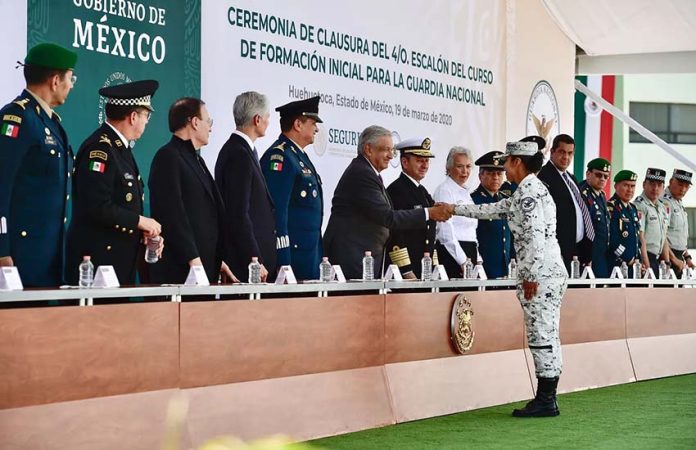There’s a lot going on with the justice system lately.
What’s not going on? Major changes in how justice happens (or doesn’t, for that matter) in Mexico.
Unfortunately, the country’s security problem hasn’t seen any real improvement in a very long while. Impunity reigns as much as it ever did, and while there have been a handful of accomplishments — ridding the state of Michoacán of many of its illegal checkpoints, for example — our security situation remains much the same, only now with more uniformed gun carriers than before.
What needs to be done first, second and third to get things moving around here?
To begin, choose your own metaphor regarding our current attempts: we’re filling a car with gas when the problem is four slashed tires; throwing bandages at stomach cancer; repainting a house whose main problem is a series of burst pipes. The only thing we know for certain is that what we’re doing isn’t working.
Curiously, President López Obrador seems to think that increasing the militarization of the country even further is the answer. I say “curiously” because for most of his political career, he’s expressed opposition to the idea, seemingly aware of how dangerous a situation putting the military in charge of so much of public life can put us in.
Now that he’s president, he seems to have embraced militarization with an unexpected fervor even though, as Transparency International Defense & Security details, “the military is one of the least transparent state institutions and benefits from a privileged position that exempts it from standard reporting, disclosure and transparency requirements.”
Or is that part of the appeal?
What I personally don’t understand is why he presents the military as more honest and less corruptible than —admittedly notoriously corrupt — civilian forces. Wasn’t a former army general just implicated in the murder of several Ayotzinapa students, after all?
It’s hard to say what brought about his change of heart from his “man of the people, speaking truth to power” days to his actions as president. I’m not sure which reasoning I hope more to be true: that the president really does believe that security has immensely improved during his administration, or that he’s simply a cynic like most humans expect their politicians to be.
I’m admittedly no security expert. All I know is that a bunch of people in uniform carrying big guns makes me personally feel less safe, not more. I mean, it’s not as if the majority of those with even a little bit of power (and firepower) around here have ever gone out of their way to not abuse that power.
And yet, AMLO seems determined to continue increasing the influence of the military over daily life and is ever-careful to point out his (sometimes imagined) accomplishments — while making sure to place the blame for continued high crime rates on others.
He recently did this by calling out judges who have allegedly allowed hardened criminals to go free and continue wreaking havoc on society. Is this strategy wise?
On the one hand, yes, bringing attention to potential corruption amongst judges is important. On the other hand, publicly shaming them rather than quietly firing them seems to use spectacle to communicate this message to the public: “See? It’s not my fault. How do you expect me to get anything done with people like this around?”
He may have a point there, but he certainly doesn’t have a stellar track record on taking rule of law seriously, given his habit of dismissing real complaints and insisting that everything is fine. Meanwhile, there are many who go to prison because a police officer made up an accusation in order to make an arrest. Poor prisoners who don’t have money for private legal counsel have been known to languish in pre-trial detention for years before trial.
As Saskia Niño de Rivera, president of the nonprofit advocacy Reinserta, pointed out, “Forty-seven percent of people in prison have been waiting for years for their culpability to be determined.”
Chale.
So, I don’t know if increasing the presence of the military in Mexico will help (though I think I’ve got a pretty guess). I don’t know if publicly shaming judges will help. I suspect that putting a limit on how long those accused of crimes can sit in jail before facing trial and possible conviction would help, as would independent international organizations brought in to audit our police and military forces and implement changes. If you come, would you mind hanging around for like 20 years to make sure it really sticks?
I just hope that we decide to replace the tires, start treatment, and finally call in the plumber.
Sarah DeVries is a writer and translator based in Xalapa, Veracruz. She can be reached through her website, sdevrieswritingandtranslating.com
